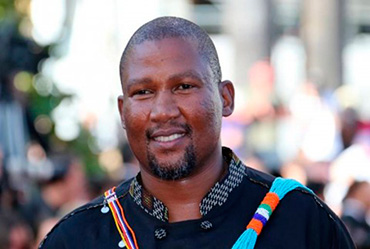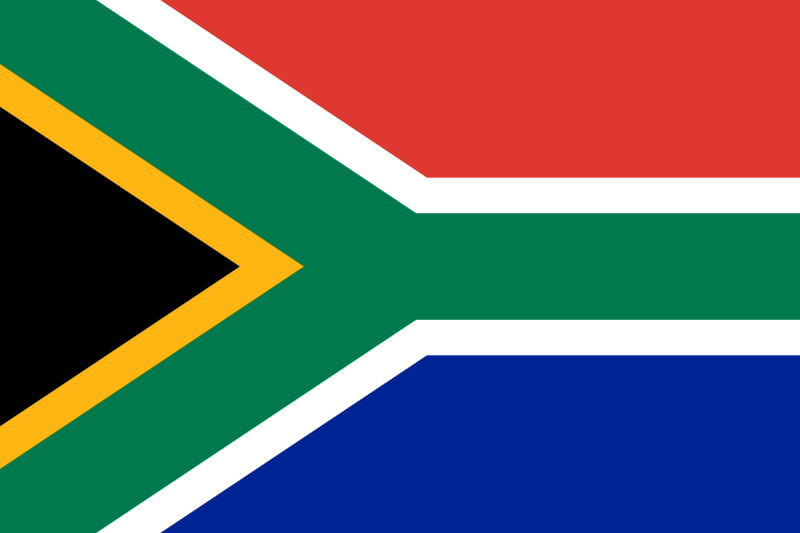Department of Agriculture, Land Reform and Rural Development (ALRRD)
BUDGET VOTE 24 & 39
Delivered by
Honourable Chairperson
Honourable Ministers
Honourable Members of Parliament
Respected Members of the Media
Honourable Comrades, Friends and Guests;
Ladies and Gentlemen;
Good morning.
It is indeed and honour for me to speak in this debate on Budget Votes 24 (Agriculture, Forestry and Fisheries) & Budget Vote 39 (Land Reform and Rural Development). From the onset the ANC support this budget.
Honourable Members, South Africa is a land of immense potential. When we look out over the vast expanse of our mountains and valleys from North to South and East to West we are humbled by its beauty and diversity of flora and fauna; the vista of agricultural and cultivated lands and the sprawling acres and hectares of semi-arid, wild and uncultivated bushland, and nature reserves. This is our story, this is the canvas of our dream. Agriculture and land is intimately connected to us, who we are and how we define ourselves.
Honourable Minister Didiza it is time that we revisit the notorious Land Act of 1913 and see how far we have come in reversing its disastrous consequences. This legislation legalized what happened over 350yrs of colonialism and five decades of apartheid. It robbed us of our land breaking down thriving and self-sustaining traditional communities. To date our focus on the land act has not been inclusive and has been at the detriment and exclusion of brave traditional leaders that lead the wars of dispossession against colonialism such as Autshumato, Makana KaNxele, Maqoma, Langalibalele, Sandile, Fadana, and Siyolo. Their stories of resistance tell the story of dispossession of vast expanses of land and the agriculture that sustained our people robbing them of both their agricultural and pastoral livelihood and the lands inherited from their forefathers.
Ladies and Gentlemen; According to a global report by Croplife over one billion people worldwide work in agriculture generating USD 2.4 trillion for the world economy. At the same time the demand for agricultural commodities is rising rapidly as the world’s population is growing. Today, there is not a nation in the world for whom the issue of sustainability, environmental integrity and food security is not a major concern. South Africa is no exception.
South Africa’s agricultural economy and agro-industries are important contributors to the NDP vision of eliminating poverty and reducing inequality by 2030. According to Trading Economics GDP from agriculture was at a record low of R3.5 billion in the first quarter of 1993 but stood at R71.1billion in the first quarter of 2019.
The value of agricultural production in South Africa increased by 4.7% and was estimated at R281 billion in 2017/2018. The primary agricultural sector has shown a growth of 7.5% annually since 1994. Despite its decreasing contribution as percentage of GDP it continues to be the largest contributor to employment by sector reaching more than 700 000 jobs in the primary agricultural economy.
Ladies and gentlemen; According to a study by Grain SA the agriculture sector uses more than 80% of available land and around 60% of available water. The bulk of agricultural production however came from mainly rural homesteads where such activity is pursued as a means of securing a secondary income.
This highlights the fact that Agriculture, forestry and fisheries have a critical role to play both in terms of food security, healthy nutrition and sustainability. It is in this regard that the Agri-processing industry has a mammoth contribution to make. However according to a study by DTI and the University of Johannesburg “the slow process of structural transformation in the these value chains (agriculture and agri-processing) has important implications for industrialization in terms of value-addition, employment creation and small and emerging players.”
Ladies and Gentlemen; it is for this reason that the Agriculture, Land Reform and Rural Development (ALRRD) mandate is at the centre of a number of key policy, transformation and delivery priorities of South Africa as outlined by H.E. President Cyril Ramaphosa in the SONA 2019. These speak to the need for radical economic transformation in terms of the policy objectives outlined in the NDP, NGP, IPAP and other strategic frameworks and considerations in the Agriculture, Land Reform and Rural Development sectors.
Honourable Members, Agriculture is identified in the NDP as one of the key sectors through which increased employment and poverty alleviation can be achieved, including creation of approximately 1 million new jobs and a trade surplus are expected to be created from agriculture, agro-processing and related sectors by 2030.
One of the key focus areas is on increasing the number of smallholder farmers and development of capacity by expanding irrigated agriculture. This in turn will impact on industry transformation and enhanced production output.
THE NDP also challenges us to achieve one of the key targets in this sector by ensuring that a third (33%) of the food surplus should be produced by smallholder farmers by 2030.
To achieve the above the implementation of the Agricultural Policy Action Plan (APAP)and Revitalization of the Agricultural and Agro-processing Value Chain (RAAVC) are critical delivery areas with a specific focus on food processing; Other critical areas include the following:
• Agricultural Production, Health and Food Safety;
• Food Security and Agrarian Reform;
• Trade Promotion and Market Access;
Honourable Chairperson; during this sixth session of Parliament some of the key legislation, policies and other interventions that must be advanced include inter alia:
• The Preservation and Development of Agricultural Land (PDAL) Bill , National Policy on Extension and Advisory Services , and the Finalization for implementation of the National Policy on Comprehensive Producer Development Support,
Honourable Members; allow me to emphasize the critical nature of giving full expression to The AgriBEE Sector Code to ensure transformation in the agricultural sector. The Father of our nascent democracy and our global icon President Nelson Rolihlahla Mandela reminded us that poverty is not an accident. This is nowhere more true than in South Africa where the alienation of the majority from the land and agricultural productivity and output is directly related to the heinous policies of the past. This sector was the greatest beneficiary of apartheid state support and one would expect a greater appreciation for the imperative to transform. However since the introduction of AgriBEE in 2003 the pace of transformation has been slow and must now move up a gear or two. I appeal to all stakeholders in this sector to put shoulders to the wheel of transformation and build a shared dream for all in this sector and our beautiful country.
Statutory Institutions in this sector such as The Agricultural Research Council (ARC), The Onderstepoort Biological Products (OBP) and The National Agricultural Marketing Council (NAMC) must all embrace their core mandates whilst collectively advancing the transformation agenda.
Honourable Chairperson; SONA 2019 emphasized the critical nature of the land reform mandate and hence the need for policy coherence, speeding up implementation and building institutional capacity. Accordingly two of the most important actions that we will be providing oversight for is finalizing the next phase of land audit which must unpack the ownership of all land under the ownership of Trusts and Companies as well as finalize survey of all land in the former homeland territories. In addition, we eagerly await the submission of an implementation plan for the identification of well-located and strategic land in cities and peri-urban areas to be released for redistribution to landless people as well as rural state land to be released for restitution and redistribution.
Honourable Members, with respect to land restitution we must accelerate the finalization of all land claims as outlined in Operation Phakisa initiative and ensure that all capacity constraints are adequately addressed. This must ensure that the capacity of the OVG is enhanced in order to support faster delivery of quality support service to land reform, especially acceleration of settlement of land claims.
As announced by Minister and the President we shall take definitive steps during this session of Parliament to finalize and advance implementation in respect of Land Expropriation Without Compensation as a means of historic redress and unlocking the vast economic potential vested in our land. We defer such decisive action at the expense of the landless masses, the land hungry and those who can make a difference in enhancing the economy of South Africa.
I want to make a bold call that all traditional lands be given equal treatment as it was all affected historically. This would be a fitting tribute to those who were the first line of defence in the fight against colonization and dispossession. It is a noble act to bring home the bones of our ancestors from Robben Island but as long as their dispossession is still structurally intact we do them and their legacy a grave injustice. Their long years of incarceration and interment on Robben Island also deferred their dreams of restitution and restorative justice.
In conclusion, let us ensure that all kings and queens of our land are treated equally as far as the utilization of taxpayers funds is concerned. In doing so we bring hope and a new dawn!
I thank you!
Nkosi ZMD Mandela, MP
Chairperson of Portfolio Committee on Agriculture, Land Reform and Rural Development (ALRRD)

Nkosi Zwelivelile “Mandla” Mandela, chief of the Mvezo Traditional Council and grandson of famed South African President Nelson Mandela. Member of Parliament (MP) South Africa National Assembly. All articles by Nkosi Zwelivelile “Mandla” Mandela











